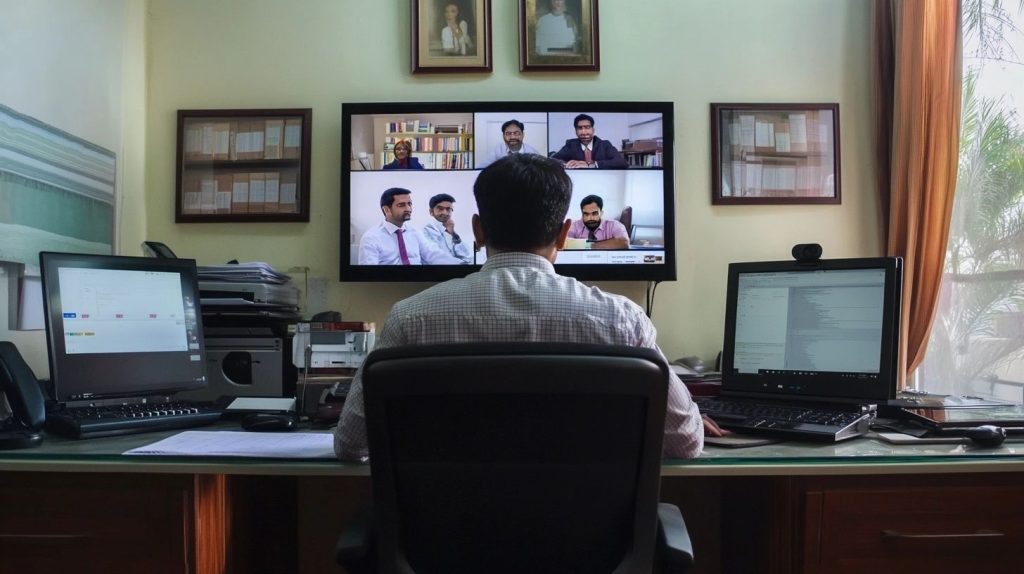In today’s proptech landscape, leveraging offshore development teams isn’t just about cost savings—it’s about accessing global talent and accelerating development cycles. However, managing teams across multiple time zones presents unique challenges that require thoughtful strategies and robust systems.
The Time Zone Challenge in Proptech Development
Real estate technology demands rapid iteration and consistent communication with stakeholders. When your development team spans multiple time zones, every aspect of project management requires careful consideration. Here’s how to make it work effectively.
1. Establishing Your Communication Framework
Synchronous Communication Windows
- Identify and maximize overlap hours between time zones
- Schedule core team meetings during these windows
- Reserve this time for complex discussions and collaborative problem-solving
- Example: If working with a team in India (UTC+5:30), schedule key meetings during early US morning/late India evening
Asynchronous Communication Best Practices
- Implement detailed documentation requirements
- Use video recordings for complex explanations
- Establish clear expectations for response times
- Tools to consider:
- Loom for video documentation
- Confluence for knowledge management
- Slack for instant messaging
- JIRA for task tracking
2. Project Management Adaptations
Sprint Planning
- Break down work into clearly defined, independent tasks
- Front-load communication-heavy tasks during overlap hours
- Build in buffer time for async questions and clarifications
- Use detailed acceptance criteria to reduce back-and-forth
Documentation Requirements
- Maintain comprehensive API documentation
- Create video walkthroughs of complex features
- Document all architectural decisions
- Keep a running FAQ for common issues
3. Technical Considerations for Distributed Teams
Code Review Process
- Implement automated code quality checks
- Establish clear code review guidelines
- Set up automated testing pipelines
- Use pull request templates to ensure consistency
Development Environment
- Standardize development environments using Docker
- Implement automated deployment processes
- Use feature flags for better control
- Maintain separate staging environments for different time zones
4. Building Team Cohesion
Cultural Integration
- Celebrate both local and team-wide achievements
- Organize virtual team-building activities
- Share knowledge about different cultural holidays and customs
- Create opportunities for cross-cultural learning
Knowledge Sharing
- Regular tech talks across teams
- Rotating pair programming sessions
- Cross-functional project assignments
- Documented learning resources and tutorials
5. Tools and Technology Stack
Essential Tools for Distributed Teams
- Version Control: Git with detailed commit messages
- Communication: Slack, Microsoft Teams
- Project Management: JIRA, Trello
- Documentation: Confluence, Notion
- Code Review: GitHub, GitLab
- Time Management: World Time Buddy, Every Time Zone
6. Measuring Success
Key Performance Indicators
- Sprint velocity
- Bug resolution time
- Documentation quality
- Team satisfaction scores
- Code quality metrics
- Release frequency
7. Common Pitfalls to Avoid
- Over-relying on Asynchronous Communication
- Solution: Schedule regular sync-ups despite time differences
- Balance async and sync communication based on project needs
- Insufficient Documentation
- Solution: Make documentation a required deliverable
- Implement documentation review processes
- Cultural Misunderstandings
- Solution: Provide cultural training
- Create clear communication guidelines
- Technical Debt Accumulation
- Solution: Regular code reviews
- Scheduled refactoring sprints
8. Building for the Future
Scaling Considerations
- Document scalable processes early
- Create onboarding materials for new team members
- Build redundancy in critical roles
- Plan for team growth and evolution
Conclusion
Managing distributed development teams in proptech requires a delicate balance of technology, process, and people skills. Success comes from creating systems that promote clear communication, maintain high quality standards, and foster team unity despite physical distance.
Remember that building an effective distributed team is an iterative process. Start with these foundational elements, but be prepared to adapt and evolve your approach based on your team’s specific needs and challenges.
Action Items for Implementation
- Audit your current communication tools and processes
- Establish clear documentation standards
- Create templates for common processes
- Set up regular team feedback sessions
- Review and optimize meeting schedules
- Implement recommended tools and technologies
By following these guidelines and remaining flexible in your approach, you can build and maintain a high-performing distributed development team that drives your proptech innovation forward.

